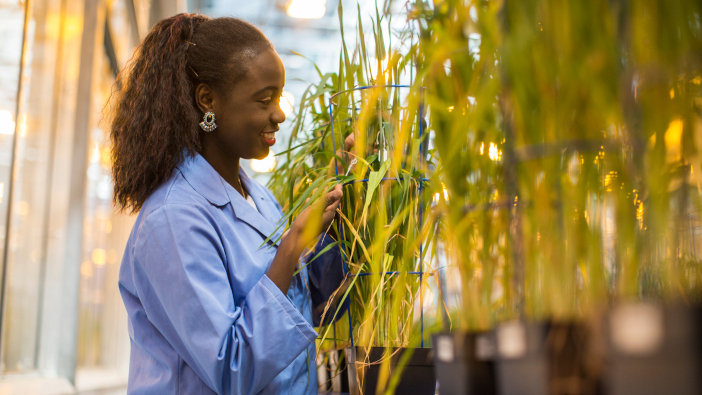The Institute of Biological, Environmental and Rural Sciences (IBERS) at Aberystwyth University has received £9.8 million in funding to support its work on resilient crops.
The Institute conducts research combatting global challenges, such as food security, bioenergy and sustainability and the impact of climate change. Studies include the need for future agricultural resilience and understanding how to produce sustainable biomass to achieve net zero targets.
The funding will specifically support studies on perennial ryegrass, clover, oats and miscanthus, as well as investigating ways of reducing the environmental impact of livestock, developing the acceleration of plant breeding and using bio-refineries to boost plant-based products.
Professor Iain Donnison, head of IBERS at Aberystwyth University, said: “It is a great honour, including as the only BBSRC institute in Wales, to have received this strategically important investment. The new funding gives us the opportunity to help agriculture to be more climate resilient as well as promote a renaissance in agricultural productivity and to develop a bioeconomy that tackles climate change while creating new industries and jobs within both rural and urban economies.”
“IBERS convenes a unique group of grassland and plant breeding scientists, state-of-the-art research facilities and collaborative industry networks with one clear vision in mind: to ensure that humanity can sustainably produce the food, animal feed and plant based industrial resources it needs, both now and in the future.”
Aberystwyth University vice-chancellor, Professor Elizabeth Treasure, added: “This new funding is a great vote of confidence in the expert team at IBERS and its world-leading research in so many fields. Its work is vital, not only locally and nationally, but for the whole world.”
Biotechnology and Biological Sciences Research Council
IBERS at Aberystwyth University is one of eight strategic research institutes supported by this long-term investment by the Biotechnology and Biological Sciences Research Council (BBSRC), part of UKRI. Funding for the institute in west Wales is part of a wider investment from the BBSRC in life science research institutes and infrastructure totalling more than £376m between 2023 and 2028.
As well as providing leadership and expertise in important areas of research, the institutes also play a key role in driving the vision and core themes outlined in BBSRC’s Institute Strategy – capability, connectivity, and culture.
Professor Melanie Welham, executive chair at BBSRC, said: “BBSRC’s strategically supported institutes are a vital component of the national and international bioscience research and innovation ecosystem. As experts in their fields, these world-class research institutes provide the UK with the capability and connectivity needed to ensure the UK remains at the forefront of the bioscience revolution.
“The investment BBSRC is making in its strategically supported institutes over the next five years will help deliver novel bio-based solutions to some of the greatest challenges we face as a society.
“Bioscience shapes our lives in so many different ways and as the UK’s major public funder of bioscience research and innovation, it is mission critical that BBSRC invests in world-class science that delivers benefits to society as a whole while driving economic growth and prosperity across the UK and beyond.”


